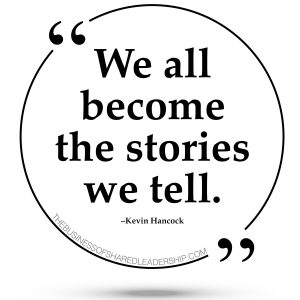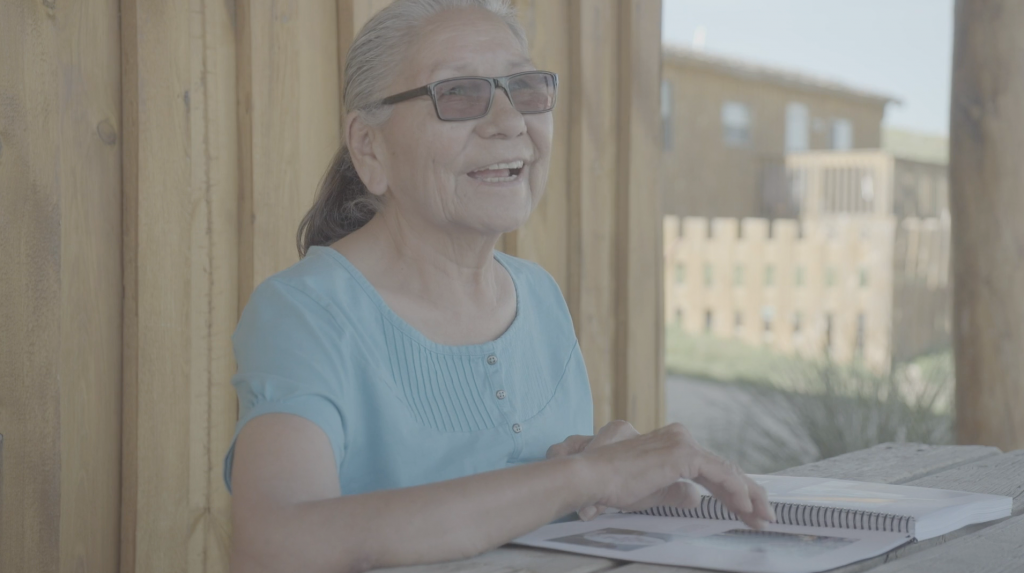“No future without forgiveness.”
—Bishop Desmond Tutu
It’s not just those in positions of leadership or privilege who must become more self-aware.
In the last two essays I have discussed how it’s important for me as a white, Christian, male CEO to reconcile my inherent privilege in Western society. This is done not to engender feelings of shame or remorse. No one is responsible for the date, time, and place of their birth. Everyone must love all facets of themselves in order to show up full of love for others.
Heightened awareness is the only goal. Awareness, in and of itself, is a powerful act.
Ultimately it’s incumbent upon all humans to strive for expanded self-awareness. For example, individuals and communities that have been historically marginalized, oppressed, and exploited must also find and sustain the will to heighten their self-awareness. We all must revisit our stories in order to transcend them.
I have a dear friend from the Pine Ridge Indian Reservation by the name of Catherine Grey Day. She is a Dakota elder who has experienced firsthand the callousness that Native Americans and tribal communities have often faced. Catherine eloquently summed up the importance of self-reflecting upon her racial inequity experiences as we sat at the kitchen table one evening at the Singing Horse Trading Post:
“It’s just about being worn down, generation after generation. The cavalry, the missionaries, the government, the boarding schools—you wake up one day and it has all been internalized. When you have been oppressed over generations and generations, the oppression finally takes hold within you. And once it takes hold, it is perpetuated from within. We act out the oppression on ourselves. That is how deeply it has been ingrained.”
I had never contemplated “internalized oppression” until Catherine defined it for me so authentically that night. To truly understand the nature of her soliloquy requires some context. There was no malice in Catherine’s statement. There was no hate, no shame, no guilt—no quest for revenge. She was perfectly calm. All of her energy was centered and grounded within herself. Catherine was demonstrating awareness of her past experiences not to reinforce that she was bound by them, but rather to liberate herself and transcend them at a soul’s level, within her very spirit.
* * *
 There is another potentially unexpected component of the Lakota story that requires heightened self-awareness, as it threatens the historic narrative that most Sioux tribal communities prefer to remember. As Americans historically and intuitively understand, the tribes of the northern plains were systematically extracted from their native grasslands and sequestered on unforgiving and barren reservations in the last decades of the nineteenth century. These proud indigenous communities were ultimately overrun by America’s “Manifest Destiny”—specifically, the quest for gold.
There is another potentially unexpected component of the Lakota story that requires heightened self-awareness, as it threatens the historic narrative that most Sioux tribal communities prefer to remember. As Americans historically and intuitively understand, the tribes of the northern plains were systematically extracted from their native grasslands and sequestered on unforgiving and barren reservations in the last decades of the nineteenth century. These proud indigenous communities were ultimately overrun by America’s “Manifest Destiny”—specifically, the quest for gold.
Yet the Sioux themselves had long been conquerors, crossing the Missouri River with guns and horses to explore and expand their own empire on the plains, generations before the reservation era began.
Consider the following excerpts from the book Lakota America by Pekka Hamalainen:
“In the course of the 1830s and 1840s Lakota fought and defeated scores of people and absorbed uncounted numbers of captives.”
“Lakotas fused trading, raiding, coercion, and diplomacy into a protean economy of violence that allowed them to simultaneously exploit and embrace others. Sustained expansion was turning them into an imperial power that commanded extensive hinterlands. Numerous Indigenous groups found their fates intractably linked to the Lakotas, some of them becoming victims or vassals, others blending into the Lakota fabric as allies.”
You see, the Lakota, too, were warriors and conquerors. They too had been military and political strategists who expanded their empire, built trade alliances, and controlled the economic resources of a vast territory. They also defeated, exploited, and assimilated weaker tribes.
The ultimate unsettling irony is that the Sioux lost the Black Hills the same way they had acquired them.
None of this excuses America’s transgressions. Genocide occurred and America justified it through stories backed by force. It’s a horrible tale that has yet to be reconciled. Nonetheless, modern Lakota communities still need to strive for heightened self-awareness. The capacity for conquering does not just live externally in others. It lives within us all.
Human communities carefully select their narratives. Our shining moments and best features are aggrandized while other less-noble chapters of our full story are delicately placed to the side. We see this in the American story where indigenous genocide, black slavery, and racial injustice have been, until recently, historically downplayed. But you can also find this propensity to carefully cultivate one’s narratives in places like the Pine Ridge Indian Reservation.
All of this being said, my heart is with Pine Ridge and filled with love for the amazing people who live there.
The need to critically self-reflect and achieve heightened self-awareness resides within us all, along with the courage required to make it happen. The process of looking inward is universally essential, regardless of circumstance.
We all become the stories we tell.
“They made us many promises, more than I can remember, but they never kept but one: They promised to take our land, and they took it.”
—Chief Red Cloud of the Oglala Sioux

“Misun [little brother], it was you who opened your ears and heard Wakan Tanka [The Great Spirit] speaking to you through other voices—sending you to a beautiful place and beautiful people [Pine Ridge]. Although we have suffered injustices, we find ways to live and survive. Wakan Tanka sends powerful spirit helpers. Keep listening to positive voices. We also learn from the negative. It is up to us to find the balance. God is good! I love you bunches, Misun! It was Wakan Tanka who placed you in my path.”
—Catherine Grey Day
* * *
Thank you for considering my thoughts. In return I honor yours. Every voice matters. Between our differences lies our future.
____________________
This is the sixteenth in a series of short essays to be posted by Kevin to www.thebusinessofsharedleadership.com in 2021. Kevin is dedicating these writings in honor of Black Elk, the Oglala Sioux holy man who was escorted as a child on a sacred vision quest by the 48 horses of the four directions to visit the six Grandfathers. My horses, prancing they are coming. They will dance; may you behold them. On that journey Black Elk understood the sacred power that dwelled within him and lives within us all. He also recognized that this power could be used for good or bad. Intentional we must be about the path we walk. To invite others to join The Business of Shared Leadership and receive these posts, just pass this link along. The more who join, the deeper the energy field of engagement will become! Thank you!